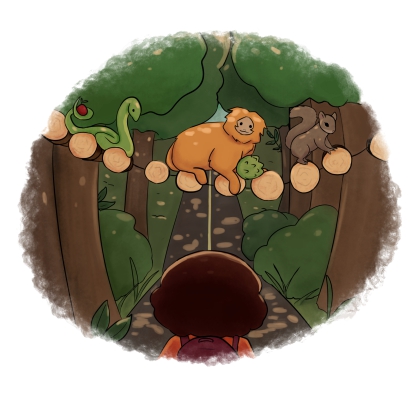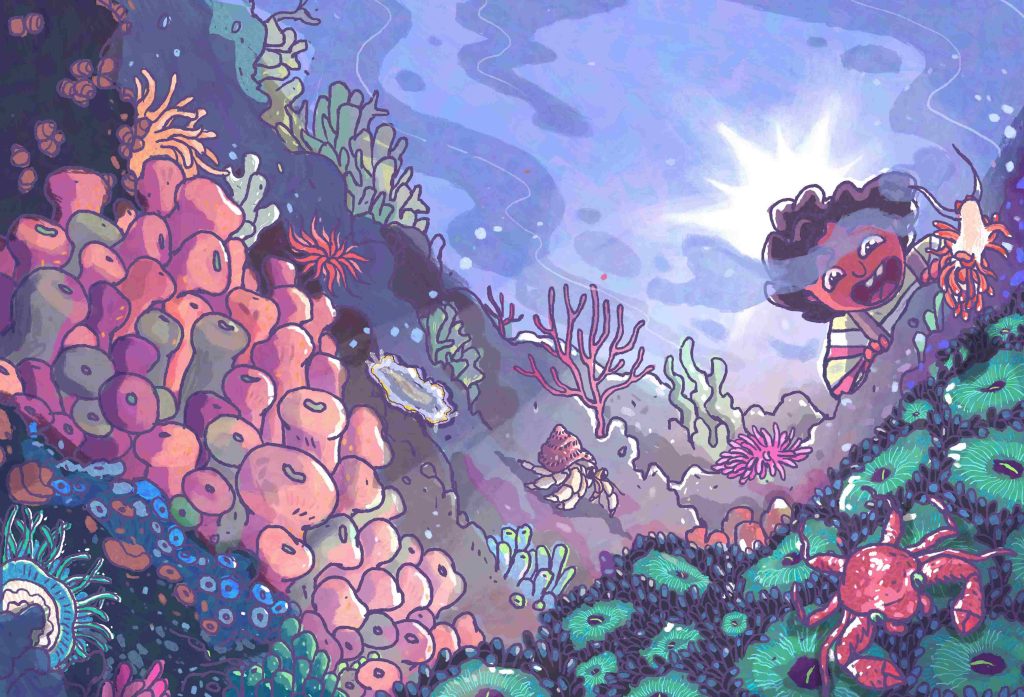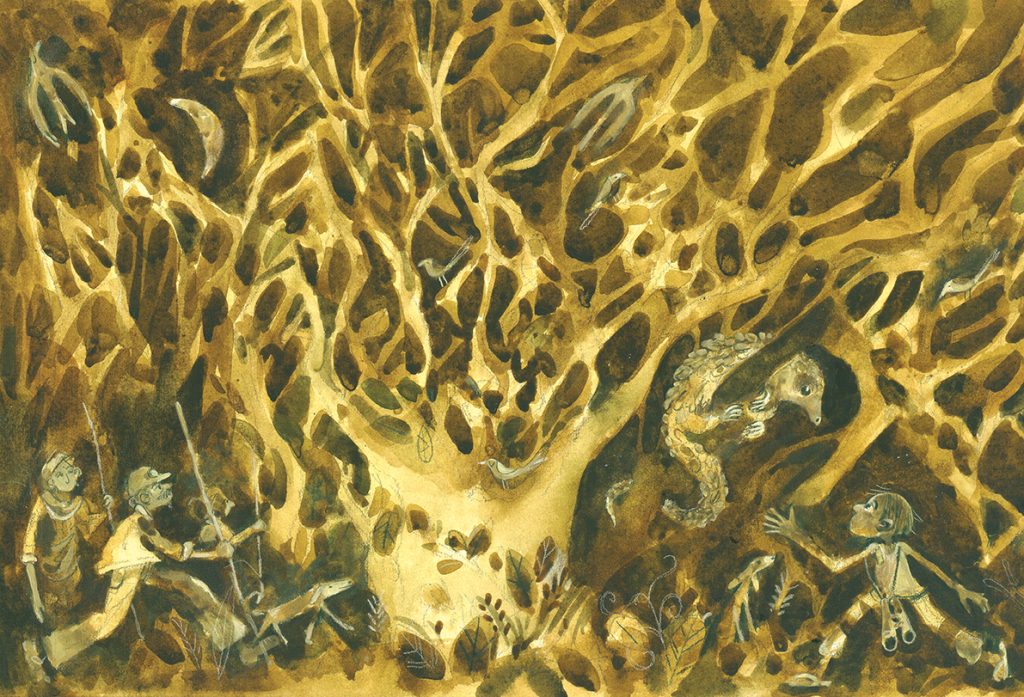“Nothing better than a grey, gloomy rainy day!” thought little Jhanko (pronounced ‘Django’).
He swirled around waving his little fins, swaying to the rhythm of the raindrops drumming on the surface of the pond. It was cold and hazy—that time of the year again, promising a new adventure.
“There you are!” his mother said as she spotted him, fear and sadness reflected in her eyes. Jhanko was a teenage paradise fish—greyish brown, with a long wavy tail. Black spots that ran from head to tail and his body had a reddish tinge. . His mother, being an adult, had bands on her body instead.
“Ma, why don’t I have bands like you?” he had asked once.
“You will get them when you grow up,” she replied.
“Jhanko, look here, son… It’s time for me to go…” she said to him now, “and you are not yet old enough to join me.”
Jhanko sniffled. He swam up and embraced her tightly, not wanting to let go. He would see her again only after a year, in the following rainy season.
His mother was off to Paradise Land, a place she had described to him vividly in bedtime stories.
“When the first rains of the season come, our home—this shallow, flooded rice field—will be connected to Paradise Land through new streams that will be formed!” she would exclaim.
“In Paradise land, you will make new friends—different kinds of fish from other places. But beware the vicious cranes who will be waiting to snatch you out of the water. Show them your tail and swim away swiftly, until you lose sight of them.”
“There are mosquito larvae and insects for you to eat there. But the best part is the paper boats!” she said.
“Paper boats?” Jhanko was curious now.
“Human children make them. They float on the water. It’s such fun to swim around them! Oh, Jhanko… Paradise Land is a large pond. It’s much deeper than this pond and you have to be careful.”
“It’s time to go, Jhanko,” his mother repeated, as she patted him on the head with a fin. He watched her swim away, through the hazy waters, until she disappeared from sight.
Jhanko dreamed of Paradise Land every day. He dreamed of swimming freely in the large pond, playing with the paper boats, relishing the mosquito larvae, listening to the croaking of frogs, waving his fins to the human children, and showing off his beautiful bands.
A year passed. He missed his mom. Jhanko flaunted his new bands and colours. “Rain, rain, come again,” chanted the fish, as they waited for the first shower of the season. Jhanko gazed at the sky all day. When lightning first streaked across the darkened sky, the fish were overjoyed.
“It’s time to go,” Jhanko said, as he waved his fins, mimicking his mother.
But something was wrong.
Swimming towards the stream in his Ma’s stories, he was shocked to find a huge concrete wall in front of him. Humans had erected it to stop the stream from flowing further.
Where was the large stream in Ma’s stories that connects the paddy field with Paradise Land?
With the way to Paradise Land was closed off, Jhanko’s dreams shattered—all he wanted was to see his mother. The other paradise fish were also clueless and could not guess what had happened.
“Whom should I ask for directions to Paradise Land?” poor Jhanko wondered in confusion.
“Paradise Land was a lie,” he thought, gazing tearily at the dark sky.
Suddenly, Jhanko heard a distant splash. He swivelled around to see a bright yellow thing floating above on the shallow surface. He couldn’t believe it! His eyes sparkled with joy. “It’s… It’s a paper boat!” he shouted.
He saw many more coming down the little stream, all of different colours. He waved at the human children who followed the boats along the stream, trying to draw their attention.
“Hey, this little fish is waving at me,” gasped a boy, waving back at Jhanko. “They must be trying to get to the big pond on the other side of this wall. I have seen a lot of paradise fish moving freely to the pond during the rains before.”
“Poor fish. They are… trapped here,” said another child. “Yeah, you are right. There was no wall here the last time. They are definitely trapped here,” he added. He then ran back to his house and returned with a scoop net.

The children soon started to scoop out the school of fish and released them in the larger pond on the other side of the wall.
Jhanko felt joy and relief, as he waved thanks to the children who helped him and his school. He was finally in the Paradise Land of his dreams. It was bigger than he imagined. The frogs croaked, there were larvae wriggling near the surface. Further ahead, he saw schools of other fish approaching. And at last, he saw his mother waving her fin at him. She darted towards her son and embraced him with joyful tears.
I would like to acknowledge Harshitha Ramamoorthy (researcher at Bombay Natural History Society) for her support in writing this story.






